Understanding Heart Failure: A Call for Awareness

In support of Heart Failure Awareness Week May 5 to 11. Heart failure is a condition that affects millions of individuals worldwide, yet it often goes unnoticed until it becomes a serious health concern. As we strive for healthier lives, it is crucial to shed light on this prevalent but often misunderstood condition.
What is Heart Failure?
Contrary to its name, heart failure does not mean that the heart has stopped working. Instead, it refers to a condition where the heart is unable to pump blood effectively to meet the body’s needs. This can happen for various reasons, such as damage from a heart attack, high blood pressure, or other chronic conditions affecting the heart muscle.
Recognizing the Signs
One of the challenges with heart failure is that its symptoms can be subtle and easily mistaken for other less serious issues. Common signs include:
- Shortness of breath, especially during physical activity or when lying down
- Persistent coughing or wheezing
- Fatigue and weakness
- Swelling in the legs, ankles, feet, or abdomen
- Rapid or irregular heartbeat
- Reduced ability to exercise
Who is at Risk?
Heart failure does not discriminate. It can affect anyone, regardless of age, gender, or background. However, certain factors can increase the risk:
Age: The risk of heart failure increases with age, particularly in individuals over 65.
High Blood Pressure: Uncontrolled high blood pressure can strain the heart over time, leading to heart failure.
Diabetes: Diabetes, especially when poorly controlled, can damage the heart’s blood vessels and lead to heart failure.
Obesity: Excess weight puts extra strain on the heart and is linked to an increased risk of heart failure.
Family History: A family history of heart disease can elevate an individual’s risk.
The Importance of Awareness
Raising awareness about heart failure is crucial for several reasons. Firstly, early detection can significantly improve outcomes. Knowing the signs allows individuals to seek medical attention promptly, potentially preventing the condition from worsening.
Secondly, understanding heart failure helps in its prevention. Lifestyle changes such as maintaining a healthy diet, regular exercise, managing stress, and avoiding smoking can all contribute to a healthier heart.
Seeking Help
If you or a loved one experience any symptoms of heart failure, it is essential to consult a healthcare professional. Diagnosis often involves a physical exam, review of medical history, and various tests such as an electrocardiogram (ECG) or echocardiogram.
Treatment for heart failure can include medications to help the heart pump more effectively, lifestyle changes, and in severe cases, procedures or surgery. However, early intervention is key to managing the condition and improving quality of life.
Conclusion
Heart failure is a prevalent yet often misunderstood condition that affects millions. By understanding its signs, risks, and the importance of early detection, we can take steps towards better heart health. Let us raise awareness, support research, and prioritize heart health in our lives and communities. A healthy heart is a gift we owe to ourselves and those we love.

Kathryn Davies
President / Owner
